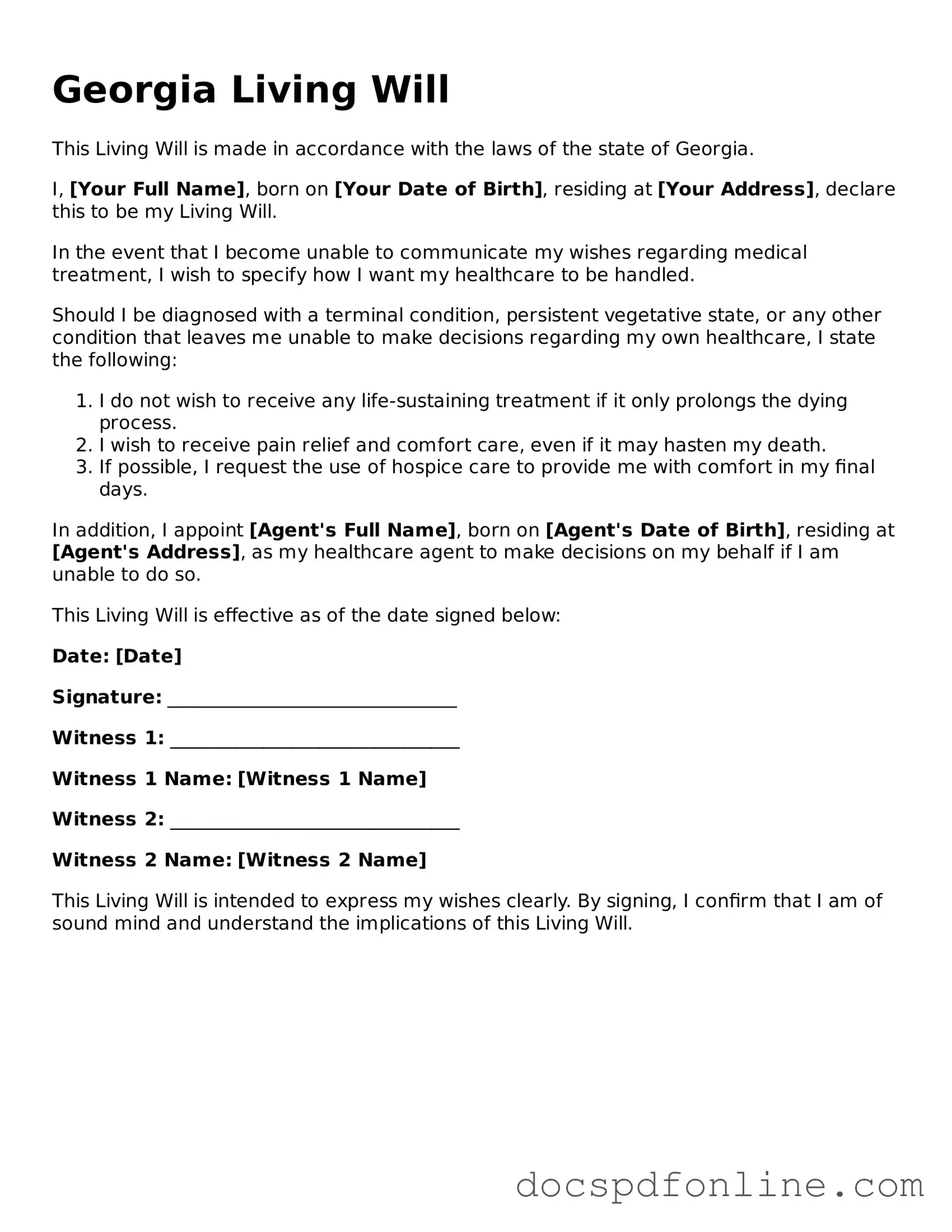Legal Living Will Template for Georgia
A Georgia Living Will form is a legal document that allows individuals to express their wishes regarding medical treatment in the event they become unable to communicate their preferences. This form ensures that healthcare providers and loved ones understand and respect a person's choices about life-sustaining measures. By completing a Living Will, individuals can gain peace of mind knowing their healthcare decisions will be honored even when they cannot voice them.
Launch Editor Now

Legal Living Will Template for Georgia
Launch Editor Now
Save time — finish this form fast
Finish Living Will online — edit, save, download made easy.
Launch Editor Now
or
↓ PDF File
